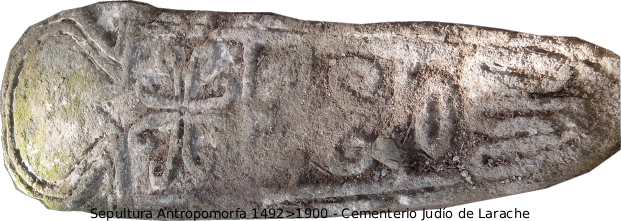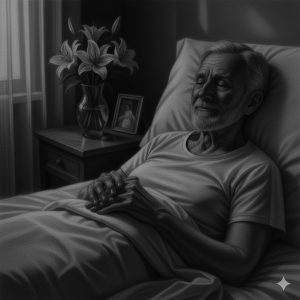
Call the Local Chevra Kadisha (if you need it). Its intervention occurs before and after death.
It is essential to record the exact day and time of death, as this data defines the Hebrew date (or Jewish date).
Protocol
It is forbidden to leave the dying person. (Shulchan Aruch – Yoreh De’ah, Chapter 339, Halakha 4).
One does not close his eyes until the soul has departed. (Shulchan Aruch, Yoreh De’ah, 339, 1)
Any frivolous talk would be inappropriate. All idle talk must be avoided.
⚠️ When the time comes, the following text is read and repeated until the patient’s complete passing.
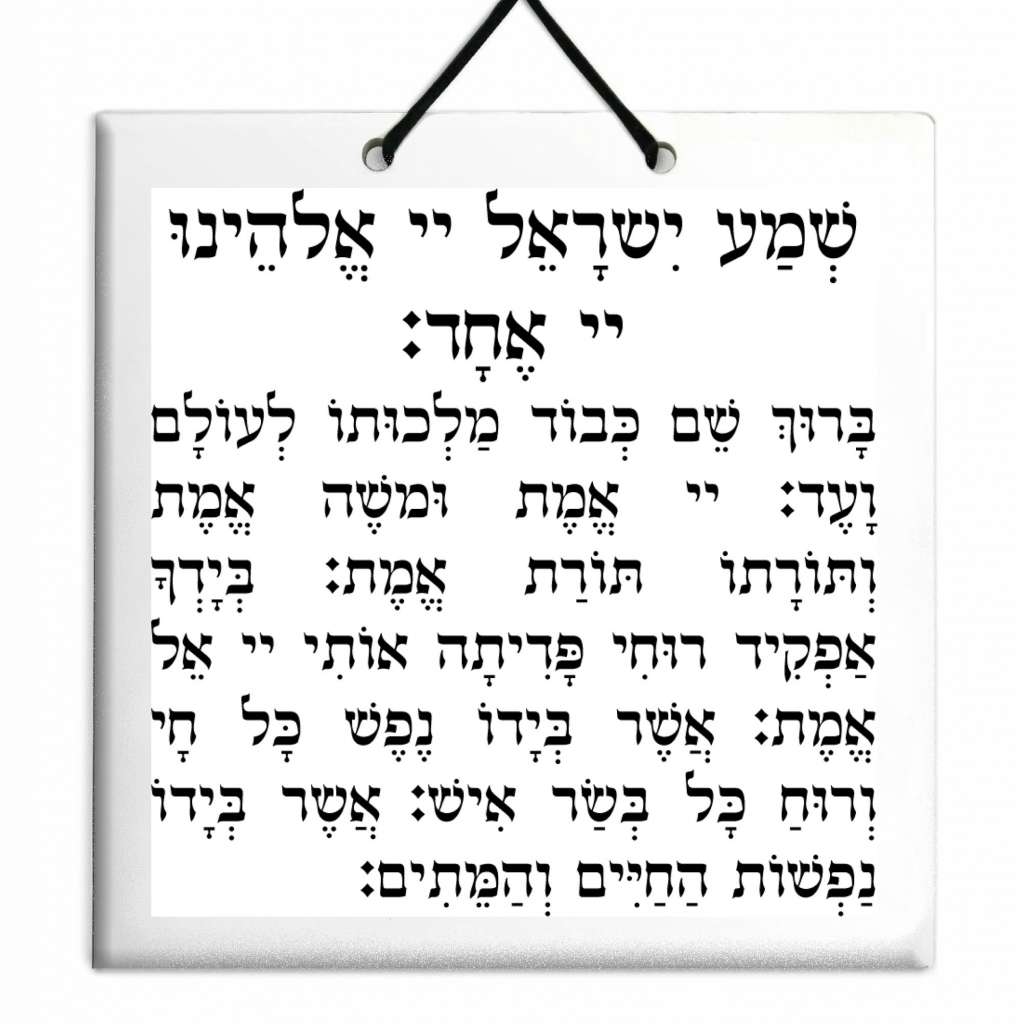
⚠️ After the passing/death, these texts will be read.
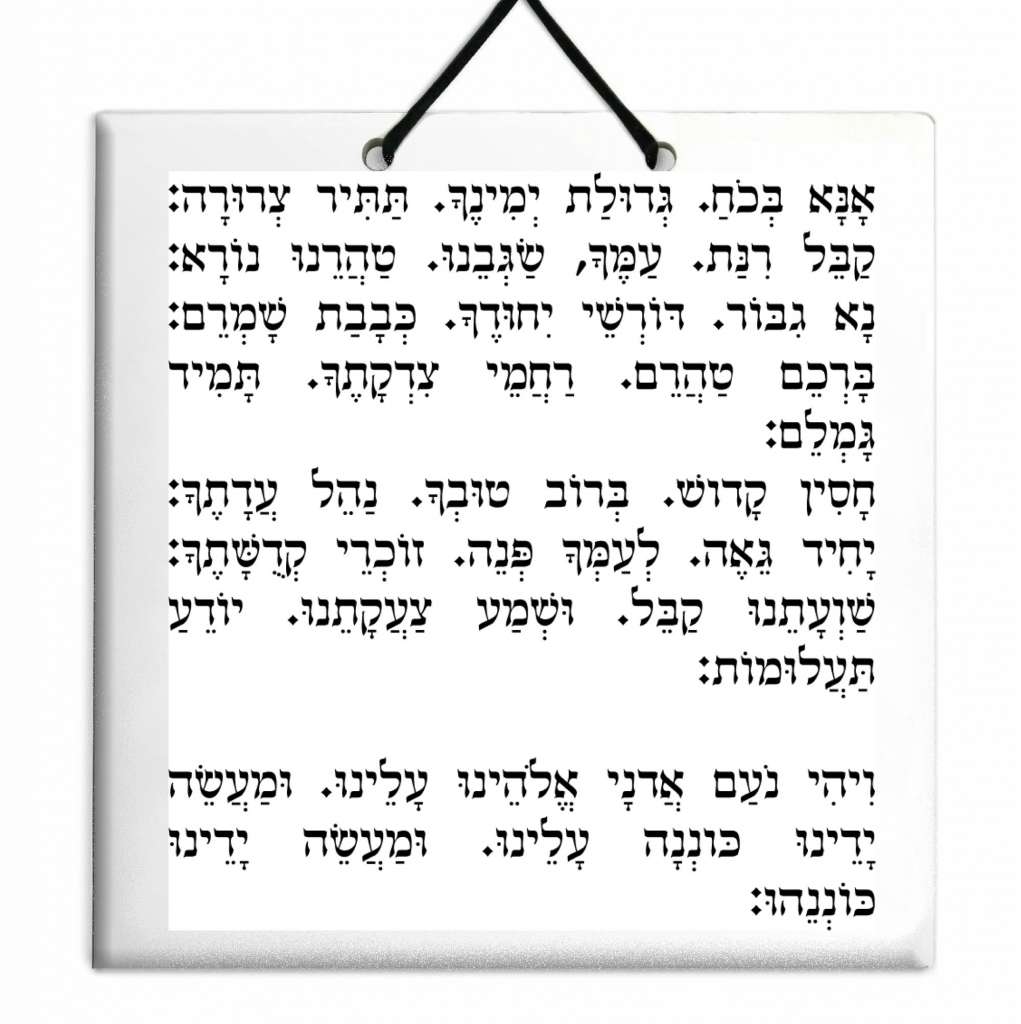

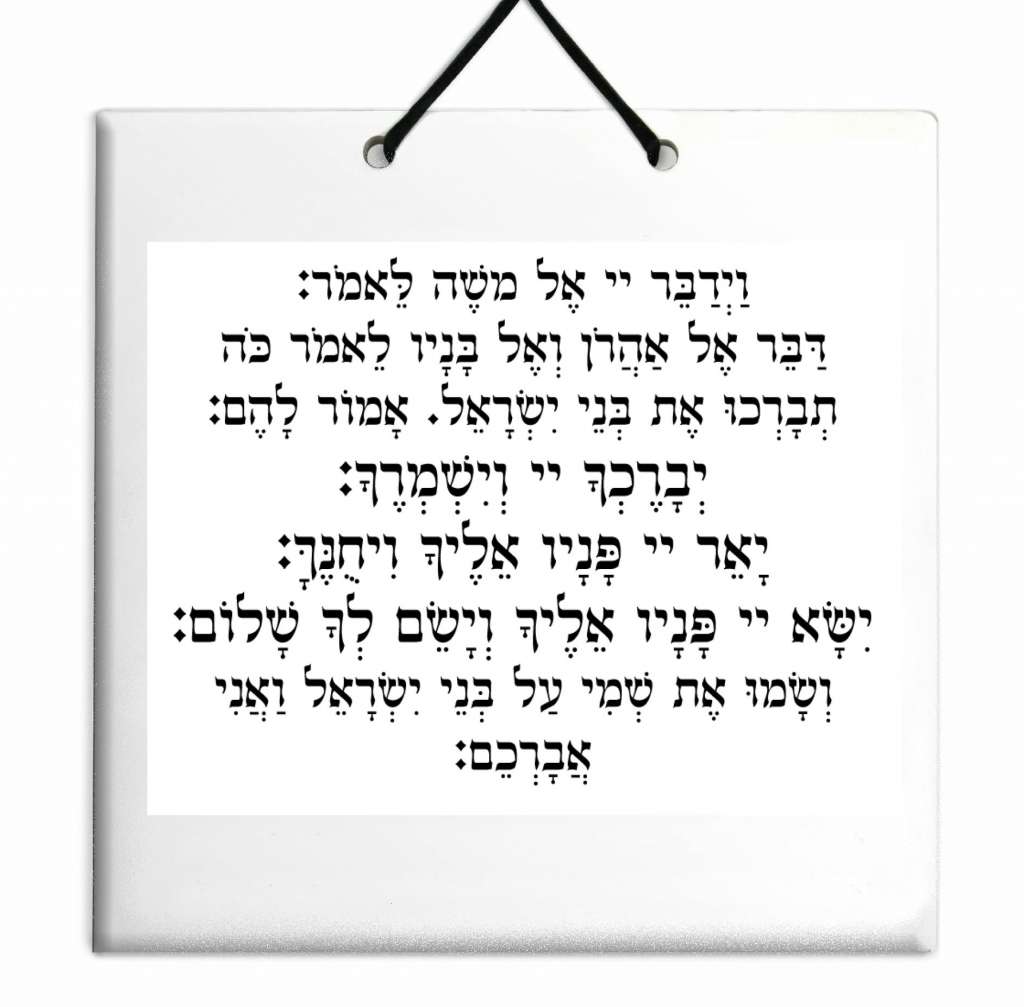
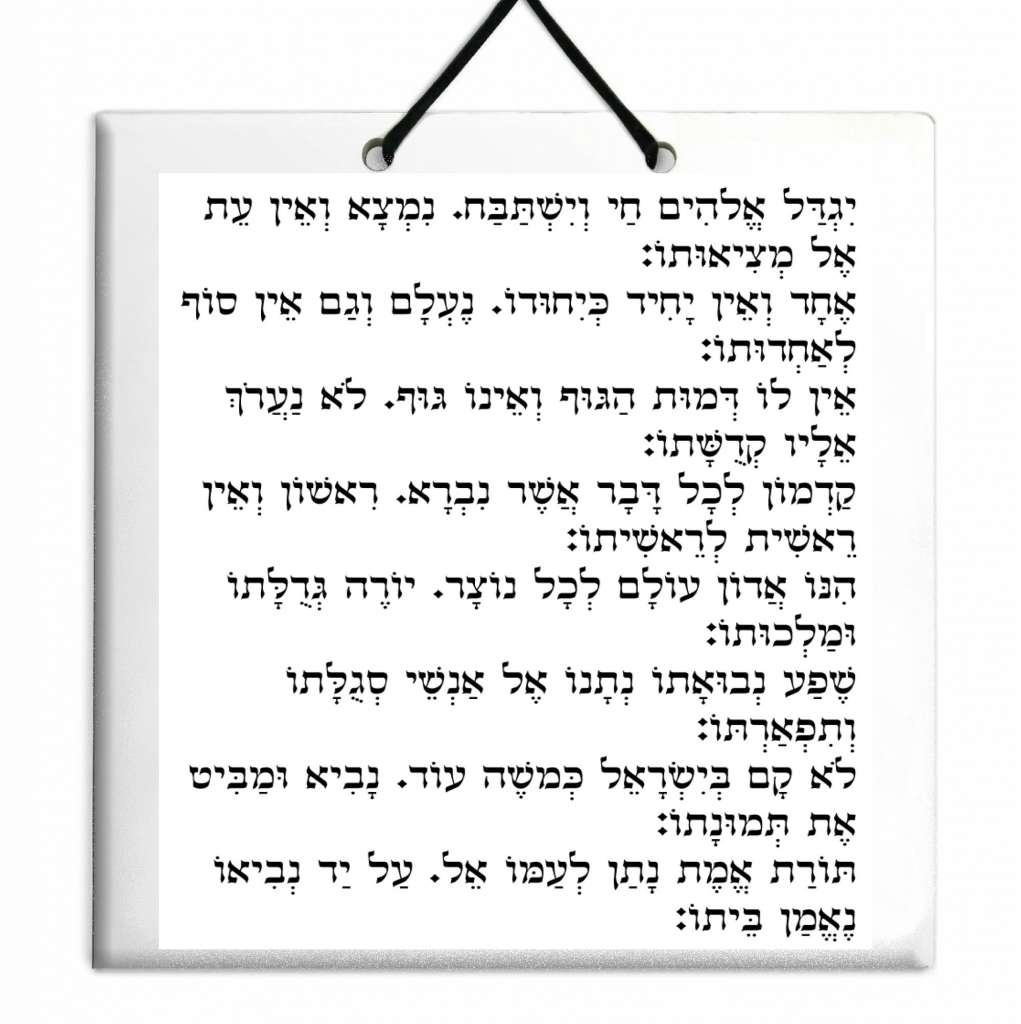
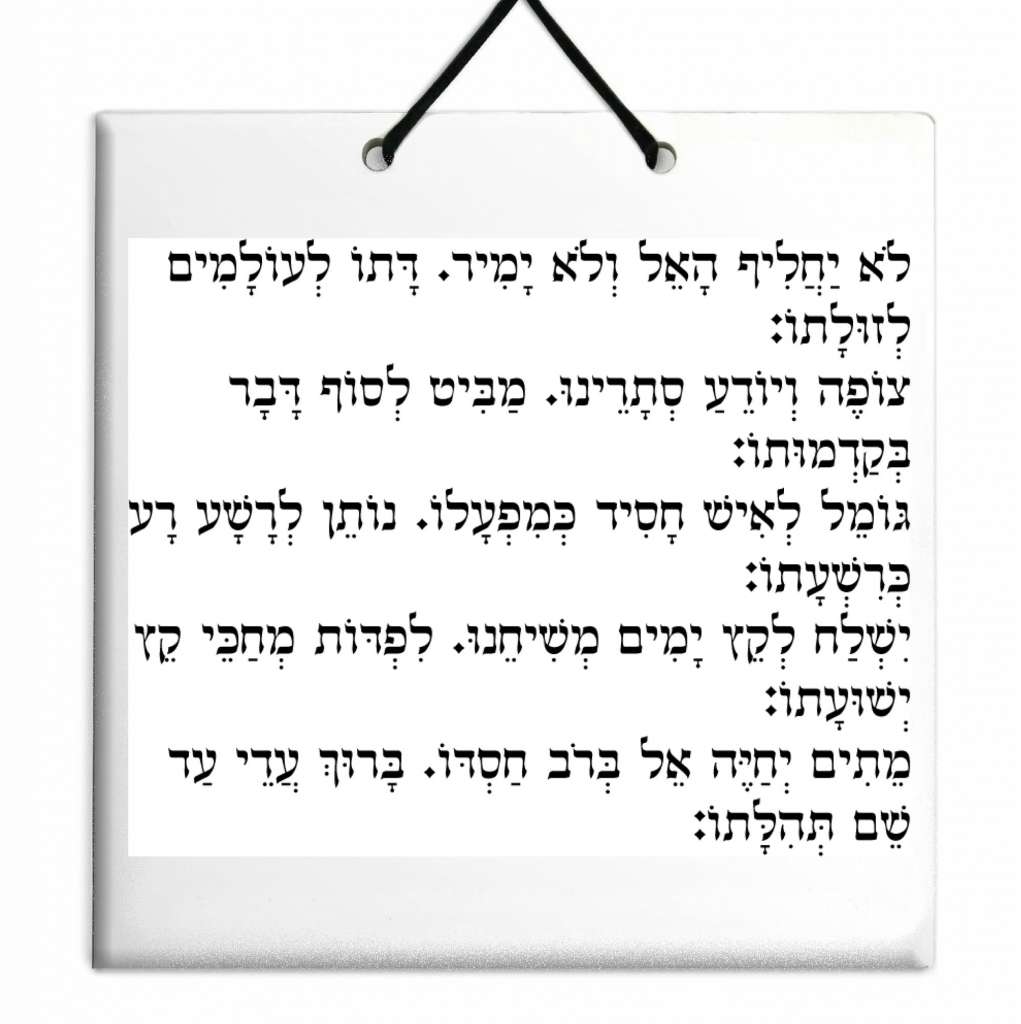
⚠️ The eyes of the deceased are closed (it is customary to entrust this task to his son).

-
Care should be taken to ensure that his hands remain open and properly placed along the body: right hand on the right side, left hand on the left side.
-
All jewelry must be removed from him and made available to the family.
-
His mouth should be closed. His face is immediately covered with a sheet.
-
As soon as the doctor has left, family friends or members of the Chevra Kadisha completely undress the deceased while covering him with a white sheet.
-
The eyes of the deceased are closed (it is customary to entrust this task to his son).
Procedures and Arrangements
-
The funeral director (or funerary operator) should be notified immediately.
-
It is customary to open the windows at the time of the soul’s departure, and also to spill out the water found in receptacles.
(Gesher HaChaim Chapter 2, page 46 in the name of the Ma’avar Yabok; Yalkut Yosef p.83)
-
If possible, half an hour after death:
-
The body is placed on the floor, while ensuring the head is slightly supported.
-
He should be positioned so that his feet are directed towards the exit of the room.
-
-
Forgiveness (mechila) is requested from the deceased, for this uncomfortable handling.
-
If possible, one candle is placed near the head and another near the feet.
The Watch (Shmira)
-
From the time of death until the burial, watchmen will succeed one another in an uninterrupted guard.
-
The deceased must be watched even on Shabbat and Yom Tov (Holidays).
-
It is customary to cover all mirrors in the house of mourning.
-
The coffin will be carried with the feet of the deceased facing forward.
 The Rules of the Onen (Pre-Burial Period)
The Rules of the Onen (Pre-Burial Period)
Definition of the Onen
-
From the time of death until the burial, the following people are called Onen (“afflicted mourners”):
-
father, mother, son, daughter, brother, sister, and spouse of the deceased.
-
Prohibitions for the Onen
From that moment, these people are forbidden to:
-
Eat meat, drink wine.
-
Bathe, wear perfume.
-
Wear new clothes.
-
Shave their beard or cut their hair.
-
Have marital relations.
-
Work, participate in a festive occasion.
-
Greet anyone. (However, if someone greets them, they should respond sadly, and if possible, with hints or signs.)
Exemptions (Dispensations)
-
The Onen (Between death and burial) is exempt from all positive commandments, whether they are from the Torah or of Rabbinic order:
-
Laying Tefillin (Phylacteries).
-
Performing Tefilah (prayer).
-
-
The mourners must not read Tehillim (Psalms) before the burial, except for Psalms 19, 79, and 137.
-
However, he must observe all negative commandments.
Arrangements Concerning Texts
-
Our Sages have imposed the obligation to hide the fringes of the small Tallit (Tallit Katan) in the presence of the dead.
-
Everything that is read or studied in his honor will be beneficial for the elevation of the soul (Psalms, Book of Lamentations, etc.)
Your local Chevra Kadisha is your primary contact.
If you are in an emergency situation and are unable to reach your local or regional Chevra Kadisha, please contact our direct helpline. We are here to help you.![]() Contact us via WhatsApp
Contact us via WhatsApp
